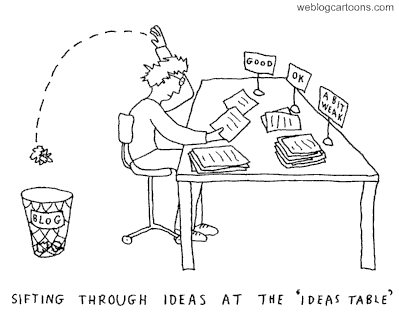Activity 3: Contribution of Teacher Inquiry Topics to my Communities of Practice
Ehara taku toa i te toa takitahi engari he toa takimano
My strength is not that of an individual but that of the collective
Communities of
Practice (CoP) are a means though which all those involved can develop their knowledge
competence through social interactions with like-minded individuals. In this sense, learning is an organic and
social phenomenon. Those involved need
to be invested in the issue/topic being inquired into and demonstrate
engagement, alignment and imagination (Wenger, 2000), as well as being
cognisant of - but willing to suspend the impact of - time constraints, and socio-cultural
environment (ego and individual agendas) (Kerno, 2008). See my previous blog post for more detail.
I have two collaborative learning related teacher inquiry
topics.
Inquiry 1:
When working with students on
high stakes research based assessments over a long period of time, how do we
avoid crossing the line from collaboration and into collusion? How do we avoid the student-teacher power imbalance?
This would be a CoP working at
the micro level in the classroom (myself and a small number of students).
It requires some context.
Scholarship Physical Education is
a year-long portfolio in which students research a topic of sociocultural and
biophysical significance such as gender identity in sport. They are required to research the issue,
synthesise the information and weave through their personal engagement and
understanding of the topic with a high degree of critical evaluation. Anecdotally, some teachers act far more
ethically in this respect than others (students from other schools have
mentioned teachers writing large parts of the portfolio for them).
This would build on my learning
from Digital 2 as the students and I consider collaboration, collusion, loss of
autonomy, loss of agency, and extent of feedback. Student voice from this assignment will be
used as a starting point for further inquiry.
Those involved in the CoP all have a vested interest in this inquiry as
all parties must sign off authenticity sheets when the portfolio is submitted.
Consequently, the need exists for both the teacher ad students.
The key issue
with this inquiry is individual student’s understanding of collaboration versus
collusion. One student’s collaboration
may be another student’s collusion.
There is no clear demarcation.
This would need to be clearly established from the outset.
Inquiry 2:
As we move towards greater use of
BYOD in the school, how do we ensure that those innovators and early adopters
are being catered for at the same time as enabling the early and late majority
to build their capacity?
As an inquiry, this topic had its
genesis in the Leadership 2 assignment and was born out of the realisation we
have been spending a lot of time and effort trying to build the capacity of the
early and late majority. The innovators
and early adopters on staff have had little on offer to grow their capacity and
challenge them to keep being innovative.
This would be a CoP that is not
operating within the school at present.
The need exists, and the school is willing to invest the time to nurture
it. It would be a self-nominating Professional
Learning Group for those who want to increase their knowledge and understanding
of digital pedagogies, leadership, and share/critique/reflect on their
experiences with like-minded individuals.
It will involve the innovators and early adopters with respect to
e-learning as they are most likely to have the engagement, alignment,
imagination, passion, and willingness to be self-reflective that would make
this group work.
The aim is to empower
these individuals to share (which is often the issue) their knowledge and
understanding thereby raising their own competence and that of other staff.
References:
Anon (2017). P3pharmacy.co.uk.
Retrieved 27 November 2017, from http://www.p3pharmacy.co.uk/images/view/f
Kerno Jr, S. J.
(2008). Limitations of Communities of Practice: A Consideration of
Unresolved Issues and Difficulties in the Approach. Journal of Leadership
& Organizational Studies, 15(1), 69–78. https://doi.org/10.1177/1548051808317998
Knox,
B. (2009, December 4). Cultivating Communities of Practice: Making Them Grow.
[video file]. Retrieved from https://www.youtube.com/watch?v=lhMPRZnRFkk
Wenger, E.
(2000). Communities of Practice and Social Learning Systems. Organization
Articles, 7(2), 225–246.




Comments
Post a Comment